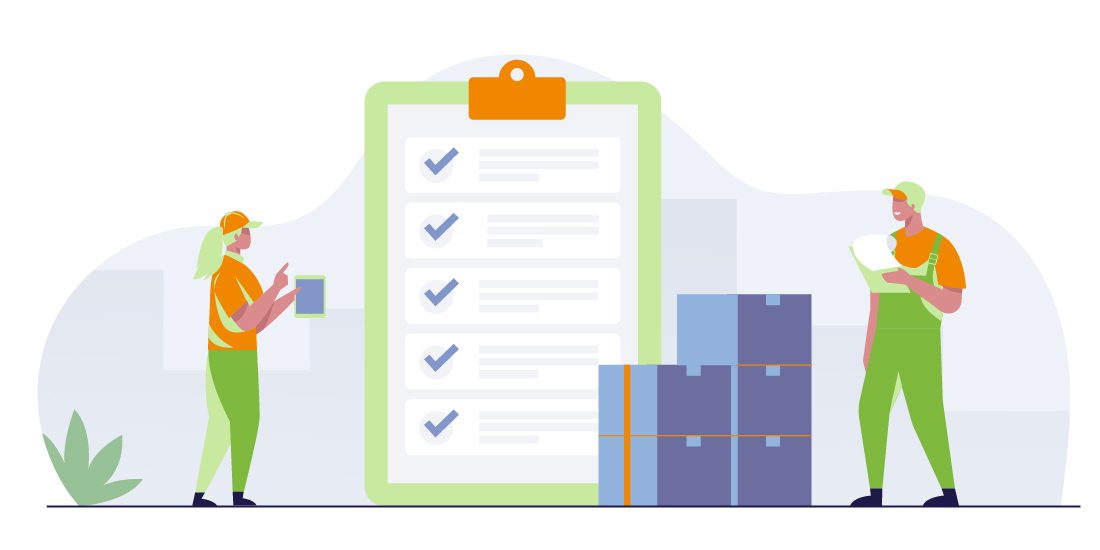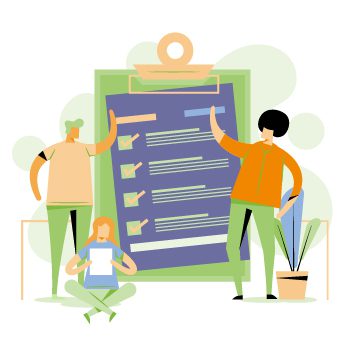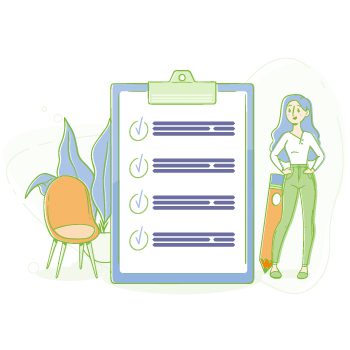
Checklist for a Successful Move to the Netherlands
11 May Checklist for a Successful Move to the Netherlands
Do Your Research
Moving to a new country can be exciting, but it can also be overwhelming. That’s why it’s essential to do your research before you make the move. Whether you’re a single person or a family with children, it’s necessary to understand the steps you need to take to ensure a successful move to the Netherlands.
First, you need to know what you’re getting into. The Netherlands is a beautiful country with a rich history and unique Dutch culture. It’s located in Western Europe and is known for its picturesque canals, tulip fields, and cycling routes. Amsterdam is the capital city, but there are also many other major cities, including Rotterdam, The Hague, and Utrecht. If you plan on living in a city center, be prepared for higher costs than in other parts of the country. Before you can move, you’ll need to have the proper official documents in order. You won’t need a Dutch visa to live and work in the Netherlands if you’re from an EU or EEA country. However, if you’re from a non-European country, you must apply for a Dutch residence permit. You’ll also need to ensure that your household items can be brought into the country. You can find a complete guide on what you need to do to obtain a Dutch residence permit on the official Dutch government website.
Another critical step is finding a place to live. You’ll need to sign a rental contract or purchase agreement, whether renting or buying. The housing market in the Netherlands can be competitive, especially in major cities. You can start your search by looking at websites like Pararius, Funda, and Kamernet. Finding an international school may be a top priority if you have children. There are many international schools throughout the Netherlands, and finding one that meets your family’s needs is crucial. Health insurance is also essential, as it is mandatory for everyone living and working in the country.
Overall, moving to the Netherlands requires careful planning and preparation. Following a step-by-step guide and researching can ensure your move is successful. Read more about how to move to Europe.


Learn the Language
When moving to the Netherlands, learning the Dutch language is essential. Dutch is the official language in the Dutch Capital, Amsterdam, and throughout the country. While many Dutch people speak English, learning the language will make it easier to integrate into Dutch society, make friends, and improve your job prospects. Learning Dutch can also be a requirement for obtaining a Permanent Residence Permit in the Netherlands. It shows that you’re committed to living and working in the country long-term and are willing to learn the language to better integrate into the community. The good news is that Dutch is relatively easy to understand, with simple grammar rules and pronunciation. Several language schools and courses are available for both beginners and advanced learners. Some employers may also offer language classes to their employees. Learning the Dutch language is also an opportunity to appreciate better the beautiful city you’ll be living in. By understanding the language, you’ll be able to communicate with locals, read signs, and understand Dutch culture. It will also make daily tasks such as grocery shopping or ordering at a restaurant much more manageable and enjoyable.
Overall, learning the Dutch language is essential when moving to the Netherlands. It will help you integrate into Dutch society, make friends, improve your job prospects, and appreciate the beautiful city you’ll live in.
Get a Job
Finding a job in the Netherlands is essential for anyone planning to move there permanently. Fortunately, the Dutch economy is stable, with relatively low unemployment rates. To make finding a job easier, starting the job search while still in your home country is advisable.
One of the first steps is to have your qualifications recognized by the Dutch authorities. Some professions require specific certificates, licenses, or degrees before one can work in that profession. Having your qualifications recognized can make it easier to find work.
There are several online job search engines that you can use to find job vacancies in the Netherlands. LinkedIn, Glassdoor, Indeed, and Monster are popular options. You can also contact recruitment agencies or consult with your network to find out if there are any opportunities available. It’s important to note that Dutch resumes differ from those used in other countries. Dutch employers are more interested in your skills and work experience than your education. So, when applying for a job, emphasize your relevant work experience and achievements. Once you find a job, ensure a contract includes all applicable terms and conditions, such as salary, benefits, and working hours. It would be best if you also asked for a copy of the Dutch Collective Labor Agreement (CLA), which outlines the terms and conditions of employment for that particular sector.
In summary, finding a job in the Netherlands requires planning and research. Start your job search early, have your qualifications recognized, tailor your resume to Dutch standards, and be prepared to negotiate the terms and conditions of your employment.


Get Health Insurance
When moving to the Netherlands, one of the first things you’ll need to take care of is getting health insurance. This is mandatory for all residents, regardless of their nationality.
The Dutch healthcare system is renowned for its quality and accessibility and is one of the best in Europe. It is divided into two types of insurance: primary and supplementary. Basic insurance covers essential medical care, while additional insurance provides extra coverage for dental care, alternative medicine, and private hospital rooms.
Here are the steps you should take to get health insurance in the Netherlands:
- Choose an insurance provider: There are many insurance providers, so research and compare their prices and coverage options.
- Register with the provider: Once you’ve chosen a provider, you must register and provide details and information about your healthcare needs.
- Pay the monthly premium: You’ll be required to pay a monthly premium for your health insurance. The cost will depend on your age, the level of coverage you choose, and your income.
- Receive your insurance card: Once you’ve paid your first premium, you’ll receive an insurance card in the mail. You’ll constantly need to carry and present this card when receiving medical care.
You can only get health insurance once you’ve registered with the municipality and received your BSN (citizen service) number. You should also make sure that your insurance covers any pre-existing medical conditions you may have. Health insurance is crucial in moving to the Netherlands, so don’t forget to add it to your checklist!
Find Housing
Finding suitable housing is one of the biggest challenges when moving to a new country. The demand for rental housing is high in the Netherlands, so starting your search early is essential. Here are some tips to help you find the suitable accommodation for you:
- Decide on your budget: Housing can be expensive in the Netherlands, so decide on a budget and stick to it. Take into account additional costs such as utilities and service fees.
- Search online: There are many online platforms where you can search for housing in the Netherlands. Some popular websites include Pararius, Funda, and Kamernet. You can also check social media groups and local classifieds.
- Contact a rental agency: If you are having trouble finding housing, consider contacting a rental agency. They can help you find suitable accommodation and provide additional services such as translation and legal advice.
- Visit potential properties: Before signing a lease, it’s essential to visit likely properties to get a feel for the area and ensure that it meets your needs.
- Sign a lease: Once you have found suitable housing, it’s time to sign a lease. Make sure to read the lease carefully and ask any questions you may have before signing.
Remember that the housing market in the Netherlands is competitive, so be prepared to act quickly when you find a suitable property. Following these tips, you can find a comfortable and affordable place to call home in the Netherlands.
Get a Residence Permit
One of the most important things you must do when moving to the Netherlands is obtain a residence permit. This is necessary for non-EU citizens planning to stay in the country for longer than 90 days. Getting a residence permit can vary depending on your circumstances and the reason for your move. However, the most common route is to apply for a residence permit through the Dutch Immigration and Naturalisation Service (IND). There are several types of residence permits that you may be eligible for, such as a work permit, study permit, or family reunification permit. To apply, you must provide various documents, including proof of identity, a passport photo, and sometimes medical certificates or a certificate of good conduct. It’s important to note that the process can take several months, so starting the application process as soon as possible is advisable to avoid any delays in your move. Once you have your residence permit, it’s essential to make sure you always have it with you, as it will serve as proof of your right to reside in the country. It’s also worth noting that if you change your address or employment while living in the Netherlands, you must notify the IND to ensure your permit remains valid.
Overall, obtaining a residence permit is essential for moving to the Netherlands and should not be overlooked. Make sure to research the requirements for your specific circumstances and allow plenty of time to complete the application process.
Register with the municipality.
After finding a place to live and obtaining your residence permit, the next step in settling into your new life in the Netherlands is registering with the municipality. This process is called “inschrijven” in Dutch and is mandatory for anyone who plans on living in the country for more than four months. To register, you must visit your municipality’s town hall or city office with your residence permit and proof of your new address. This could be a rental agreement or warranty of ownership of your new home. The registration process is quick and straightforward, but it’s essential to do it as soon as possible after arriving in the Netherlands. Registering with the municipality allows you to:
- Apply for a Dutch BSN (Citizen Service Number), which is necessary for everything from opening a bank account to getting health insurance.
- Access public services like healthcare and education.
- Vote in local elections.
Remember that you will also need to update your registration if you move within the Netherlands, and you’ll need to de-register when you leave the country. So, it’s essential to keep your address up to date and always make sure your registration is current. Registering with the municipality is critical to move to the Netherlands. It sets you up with a BSN, which you’ll need for almost everything else, and it ensures that you’re recognized as an official resident of your new home. Make sure to complete this step early to enjoy all the Netherlands has to offer!
Open a Dutch Bank Account
One important thing to do when moving to the Netherlands is to open a Dutch bank account. A local bank account will make paying bills, receiving payments, and managing your finances more manageable. To open a bank account in the Netherlands, you must provide some basic information such as your passport, residence permit, and proof of address. You can do this in person at a bank branch or apply online. Some of the top banks in the Netherlands include ING, ABN AMRO, and Rabobank. Each bank has its fees and services, so it’s a good idea to compare your options before choosing one. When opening your account, ask about any fees or charges that may apply, such as monthly account fees or fees for international transfers. It’s also a good idea to inquire about any perks or benefits that the bank may offer, such as free ATM withdrawals or discounts on certain services. Once your account is set up, be sure to familiarize yourself with the banking system in the Netherlands. You can access your account through online banking or mobile apps, and many Dutch banks also offer contactless payment options such as Apple Pay and Google Pay. Having a Dutch bank account will not only make your day-to-day finances easier to manage, but it will also help you to integrate into Dutch society and culture fully.
FAQ’s
How do I find a place to live in the Netherlands?
You can search for apartments or houses on real estate websites or hire a real estate agent to help you find a suitable place. It’s essential to consider your budget, location, and transportation options.
What is the healthcare system like in the Netherlands?
The Netherlands has a universal healthcare system that is mandatory for residents. You will need to register with a healthcare provider and pay monthly premiums.
How can I open a bank account in the Netherlands?
You’ll need to provide proof of identity, proof of address, and your residence permit or visa to open a bank account. Many banks require you to make an appointment in advance.
How do I obtain a Dutch driver's license?
You can exchange it for Dutch support if you have a valid driver’s license from another EU country. Otherwise, you’ll need to take a driving exam.
What documents must I bring when moving to the Netherlands?
You should bring your passport, birth certificate, educational certificates, work references, and any medical records or prescriptions you may need.

